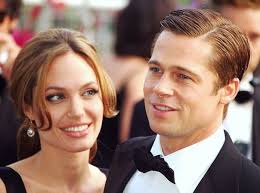 Following the break-up of HiddleSwift, it seems as though an infectious virus dissolving relationships old and new is spreading through Tinseltown: Naomi Watts and Liev Schreiber, done after 11 years and two children together, but who never officially married; Kiefer Sutherland and Julia Roberts have ‘delayed’ their planned nuptials, and, now, even the indomitable Brangelina have called it quits, and this with six children in tow. Unlike many Hollywood couples, Mr. Pitt and Ms. Jolie actually were married, or at least they went through some kind of ceremony. Now, accounts report, former bad-boy Pitt is trying to seek a reconiciliation with his other half. You go, Brad, m’boy…
Following the break-up of HiddleSwift, it seems as though an infectious virus dissolving relationships old and new is spreading through Tinseltown: Naomi Watts and Liev Schreiber, done after 11 years and two children together, but who never officially married; Kiefer Sutherland and Julia Roberts have ‘delayed’ their planned nuptials, and, now, even the indomitable Brangelina have called it quits, and this with six children in tow. Unlike many Hollywood couples, Mr. Pitt and Ms. Jolie actually were married, or at least they went through some kind of ceremony. Now, accounts report, former bad-boy Pitt is trying to seek a reconiciliation with his other half. You go, Brad, m’boy…
At the same time, we recently heard from another (former) power couple (that former belongs with ‘power’, for they are still a couple), namely Kurt Russell and Goldie Hawn, stars of numerous films of middling to low quality in the seventies and eighties, who claim to have the sure-fire recipe for sticking together, through thick and thin: Wait for it, it is never to get married at all! That did not seem to work for Schreiber and Watts but, oh well…
I think what they mean is that it is best if one lives with the option of being able to chuck it all and, like Paul Simon sang, be able to slip out the back, Jack, or hop on the bus, Gus…it matters not where one runs, just away from you. Such thoughts of possible easy escape, I suppose, are meant to keep one going in the darker moments.
Russell and Hawn have a point, for it is sort of unnatural to commit oneself to another person, in an unremitting and irrevocable conjugal  relationship, for life. Even the great Saint Thomas taught that, at the purely natural level, a married couple were only bound to stay together until their children were raised. For children need a stable home, and the example and influence of a father and mother, to develop fully. After they are grown up and moved out (a seemingly endless process in our day of perpetual adolescence), the natural reasons to share hearth and home diminish, if not recede into the background. That is why the Church has always permitted couples to ‘separate’, to commit themselves to a life of greater perfection in consecrated continence, by mutual agreement, once the obligations of the marriage are complete.
relationship, for life. Even the great Saint Thomas taught that, at the purely natural level, a married couple were only bound to stay together until their children were raised. For children need a stable home, and the example and influence of a father and mother, to develop fully. After they are grown up and moved out (a seemingly endless process in our day of perpetual adolescence), the natural reasons to share hearth and home diminish, if not recede into the background. That is why the Church has always permitted couples to ‘separate’, to commit themselves to a life of greater perfection in consecrated continence, by mutual agreement, once the obligations of the marriage are complete.
But this is the very rare exception, not the rule, because marriage is not a purely natural reality, for the simple reason that we are not just natural beings. In Man, the natural and the supernatural, the physical and the spiritual, coalesce into a complex reality, making him a metaphysical hybrid of sorts. Although neither angel nor beast, Man has elements of both within him. Hence, romance and sex are not just natural psycho-physiological experiences that take up time and effort on the weekend. Rather, as Pope John Paul II so clearly taught, they are deeply spiritual realities, by which one ‘gives’ oneself to the other, fully and completely, body and soul.
Fornication, adultery, divorce and such like are not bad just because of their emotional, societal and familial consequences, or because they are detrimental to present and future children. Rather, they are bad primarily because they lead to our own corruption. They make us less human, more bestial, even, taken far enough, demonic. The sexual act ‘signifies’ far more than ‘let’s have a good time using each other’s bodies as a means of achieving climax’, even if one thinks and acts this way. Rather, the conjugal act always signifies, even if one does not intend it as such, a total reciprocal self-gift. When one holds back, by limiting commitment, by contraception, by pure use-for-pleasure, or by selling one’s body, one is telling a profound lie, signifying one thing externally, while meaning another internally. And a lie of such dimensions, told in the most intimate way with one’s body, is impossible to revoke. One is marked for life by sexual activity, by ‘carnal knowledge’ with another, which is why virginity should be preserved until marriage, or offered to God in consecration.
That is also why divorce is so painful, and should not be made easy in law. Pierre Trudeau did Canada a great disservice (as he did in so many  other ways) by legalizing divorce, paving the way to the advertisement I recently saw on the side of a bus for a lawyer’s office offering no-fault, and no hassle, dissolution of marriages, akin to the one pictured.
other ways) by legalizing divorce, paving the way to the advertisement I recently saw on the side of a bus for a lawyer’s office offering no-fault, and no hassle, dissolution of marriages, akin to the one pictured.
Of course, there is no such thing as no-fault and no-pain divorce. For to rend a marriage, or indeed any conjugal relationship, is to rend one’s own, as well as one’s spouse’s, flesh in two, and this before we discuss what it does to the children. That is also why we should not be so quick in the Church to speed up our annulment process (a declaration that a marriage never existed), turning it practically into a type of free-and-easy Catholic divorce, or to make shacking up without the commitment of matrimony too easy and conscience-free, a la the Russell-Hawns. Such would be a scandal of literally Biblical proportions, as Pope John Paul II implied in his 1981 Letter Familiaris Consortio. The Catholic Church is the last bastion left in our world witnessing to the truth of the sanctity and indissolubility of the marital bond, and it would be sad indeed if we were to give even the appearance of wobbling on this front, as seems to be happening.
I am glad Goldie and Kurt have made it through all these years together, but, regardless of what they say, the mere fact of their conjugal life has by its very nature committed them to each other, whether they know it or not. The sacrament (or, in their case, the ‘ceremony’) of matrimony solemnizes what is there to some extent already, namely, the will to give oneself to the other for life, come hell or high water. The best option in any long-term conjugal relationship is to regularize the union, or, if it is in danger of disintegration, to seek healing and reconciliation, for each other’s sake, and for the sake of the children involved. My recommendation to all these woeful, wayward couples, which applies to all those in fluid sexual ‘partnerships’ out there, would therefore be to solemnize and solidify their relationships currently built on shifting sand, before they meet the judgement seat of God. That way, they can show up, yes you know it, wearing their ‘wedding garment’.



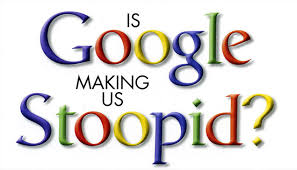
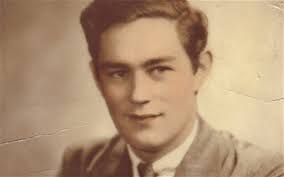 tic seizures, one of the treatments for which (even to this day) is to excise the damaged parts of the brain causing the seizures. So, in 1953, H. M. underwent radical brain surgery that removed, most tragically as we would soon discover, both of his hippocampi, two small little organs located just under the temporal lobe, which gets its name from its resemblance to a sea-horse.
tic seizures, one of the treatments for which (even to this day) is to excise the damaged parts of the brain causing the seizures. So, in 1953, H. M. underwent radical brain surgery that removed, most tragically as we would soon discover, both of his hippocampi, two small little organs located just under the temporal lobe, which gets its name from its resemblance to a sea-horse.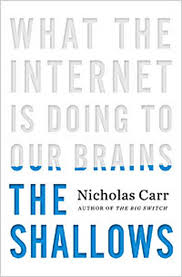

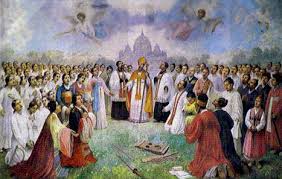
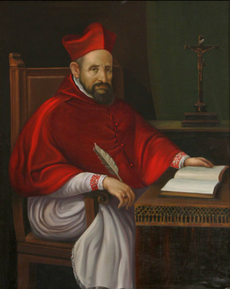
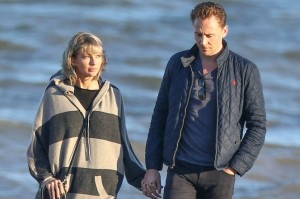
 Well, everything. It seems that as soon as Tom had to return to filming yet-another sequel in the ghastly Avengers series (I suppose they will keep making them so long as they make billions), the romance cooled off like a forgotten and deflated Yorkshire pudding left out too long. The nail was driven into the coffin when Tom-Loki tweeted a photo of himself ‘in costume’, which may have woken up Ms. Swift to what her paramour actually did for a living, playing some ridiculous mythical god-like creature in an unwatchable franchise, but I will not dwell upon this point, which is somewhat accidental. I bear no grudge against Hiddleston, nor his films, which I am not forced to watch, nor, as far as I know, to pay for (see my review of the original Avengers, which was, in fact,
Well, everything. It seems that as soon as Tom had to return to filming yet-another sequel in the ghastly Avengers series (I suppose they will keep making them so long as they make billions), the romance cooled off like a forgotten and deflated Yorkshire pudding left out too long. The nail was driven into the coffin when Tom-Loki tweeted a photo of himself ‘in costume’, which may have woken up Ms. Swift to what her paramour actually did for a living, playing some ridiculous mythical god-like creature in an unwatchable franchise, but I will not dwell upon this point, which is somewhat accidental. I bear no grudge against Hiddleston, nor his films, which I am not forced to watch, nor, as far as I know, to pay for (see my review of the original Avengers, which was, in fact, 
